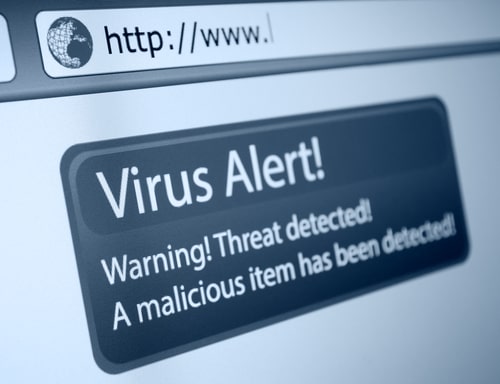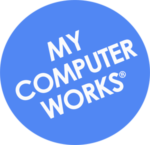With support solutions for the home and office, My Computer Works is here to help you get back to your life.
Computer Virus Myths

Our tech support has been in the computer repair business for many years now. In that time, we have noticed many myths about computer viruses that continue to be considered common knowledge. The strongest protection against computer viruses is knowledge of how they work.
Here are a few corrections to help change the way you think about computer safety.
1. “My computer is slow, I must have a virus.”
A slow computer does not mean it is in infected. Of course, if you do have a virus it does often slow the performance of your computer or internet. But many other things can cause your computer to run slow as well.
Have you left your computer on and running for too long? If you haven’t at least done a restart in the 24 hours, that can clear up a lot of problems. This clears the cache, your RAM, and forces a new registry read. It also processes any important Windows Updates you’ve had queued up.
If your hard drive is getting full, that means less space for temporary files. Which means many programs will have trouble running. We recommend having at 20% of your hard drive free. If you’re getting close to that limit, it might be time to do some spring cleaning or upgrade to a larger hard drive.
2. “I am getting pop-ups or error messages, I must have a virus.”
Many hardware issues or software conflicts cause error messages to pop up on screen as well. Read the error message carefully and do some research or ask a professional if you’re not sure.
If you’re getting advertisement pop-ups or added toolbars, that’s more likely to be a form of Malware than a Virus. Running an anti-virus scan won’t catch these kinds of programs, and you should run an anti-malware program as well.
3. “I can’t get a virus, I have an Anti-Virus program.”
Virus creators know how anti-virus programs work and are regularly coming up with new ways to sneak by. Thankfully, anti-virus developers keep up with these threats and put out updates to combat them. This is why it’s important to keep your anti-virus up to date at all times.
But those updates can take some time to develop. A new virus usually has plenty time to infect many computers before an update is released. You might be one of the unlucky first few people to stumble across it before a fix is found.
4. “I can’t get a virus, I have a Mac.”
Many years ago, there were much fewer Mac users than Windows users. As such, to affect as many users as possible, viruses targeted Windows computers. At the time, Macs had few virus threats and thus the ‘Macs are virus-proof’ rumor got started.
As Macs become popular, more and more threats are being released that can affect Apple users. Malware designed to attach themselves to browsers such as FireFox or Chrome can affect both systems.
5. “I can’t get a virus, I don’t download anything.”
Not all viruses come from e-mail attachments or in programs. You should still be cautious in what you download. But just visiting an infected website or could get your computer riddled with malware.
Many infected sites use advertisements to lure you in. We recommend installing Adblock, which blocks most advertisements and reduces this risk.
6. “I can’t get a virus, I don’t visit adult sites.”
While free adult sites covered in advertisements can be dangerous, those specific sites are not the only place you can end up with a virus. Most branded sites spend a lot of money to keep their sites as clean as possible.
Small blogs and websites run by learning webmasters may not be familiar with how to keep their website secure. That coupon blog you visit might have just added a cool new plugin to their website and not realized it had a malicious script hidden in it. You never know where you might get infected.
This doesn’t mean you shouldn’t go online because everything can be a threat. Running anti-virus and being cautious while surfing will help cut down threats and keep you safe. But ultimately, even the most tech savvy users can end up with a malicious program on their computer.
What’s important is that you get it cleaned out as soon as you start noticing the warning signs. And always keep your files backed up just in case.
Lastly, if you have anymore issues on this same topic, please give My Computer Works a call at (800) 935-6704. Their techs are patient and get the job done well.


